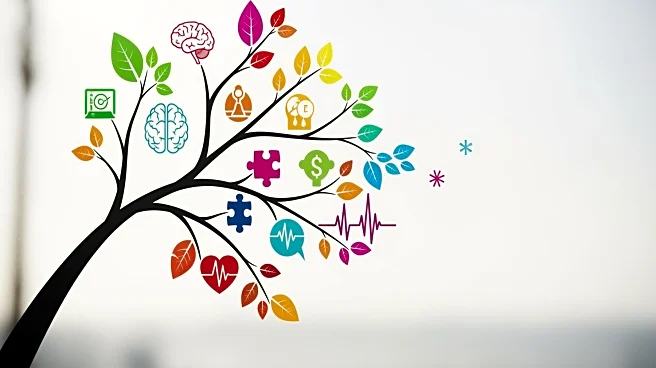What's Happening?
The European Society of Cardiology's annual meeting in Madrid showcased groundbreaking research and new guidelines in cardiology. Attended by 33,000 health professionals, the event featured over 1,100 sessions on topics such as drugs, diet, and artificial intelligence in heart condition management. The congress emphasized a dynamic, interdisciplinary, and patient-centered approach to cardiology, with numerous late-breaking trials informing clinical decision-making.
Why It's Important?
The ESC congress serves as a pivotal platform for advancing cardiology practices globally. The introduction of new research and guidelines can significantly impact patient care, offering more effective and personalized treatment options. The focus on interdisciplinary approaches highlights the evolving nature of cardiology, where collaboration across various fields is essential for improving outcomes. The integration of AI in cardiology could revolutionize diagnostics and treatment, making care more efficient and tailored to individual needs.
What's Next?
The insights gained from the ESC congress are likely to influence future research and clinical practices in cardiology. As new trials and studies are published, healthcare providers may adopt updated guidelines and treatment protocols. The emphasis on AI and interdisciplinary collaboration suggests ongoing innovation in cardiology, with potential developments in personalized medicine and technology-driven care.
Beyond the Headlines
The congress highlights the importance of addressing health disparities and ensuring equitable access to advanced cardiology treatments. The representation of diverse populations in research is crucial for developing inclusive and effective care strategies. Additionally, the focus on patient-centered care underscores the need for healthcare systems to prioritize patient experiences and outcomes.










